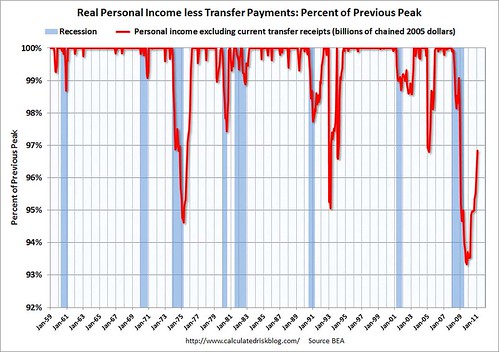I used the preview image but not the video itself in Ohio State and Michigan marching bands for National Horror Movie Day.
Ohio's Issue 2 video
Nov. 6th, 2023 08:54 amI mentioned Issue 2 in FiveThirtyEight's 2023 elections to watch, but didn't embed a video about it.
I used another video for PBS Terra asks 'Can Green Energy Make The Grid SAFER?' I thought something more global and evergreen would get more page views than this video, which was more local and time-specific. I may have been wrong.
Over the weekend, Gothamist and DNAInfo, along with other affiliated local online papers, were closed town and their content temporarily removed because the publications' owner did not want unions in his business (never mind that he owns the Chicago Cubs, where the players are also unionized). That reminded me that something similar happened to me a year ago, when Examiner.com closed down. All of my articles disappeared. However, I still have the last year and one half of them on my hard drive. Just as I did with my notes for Crazy Eddie's Motie News, I am posting them here. Yes, I'm treating this journal as my online attic, but at least I have a use for it.
Without any further ado, here is one of several articles I wrote as Detroit Science News Examiner that I still have saved to disk.
( NOAA, U-M predict even larger Lake Erie algae bloom in 2015 )





Crazy Eddie Motie News: Weekend News Linkspam--Midwest University News
By virtue of having a week's worth of news as green as its school colors, Michigan State managed to have yesterday's linkspam pretty much all to itself. Now, the rest of the Midwestern public research universities get their turns.
University of Michigan: The Population Bomb: How we survived it
ANN ARBOR, Mich.—World population will reach 7 billion this year, prompting new concerns about whether the world will soon face a major population crisis.I think someone is being too optimistic. Then again, it's an economist saying this, not an ecologist.
"In spite of 50 years of the fastest population growth on record, the world did remarkably well in producing enough food and reducing poverty," said University of Michigan economist David Lam, in his presidential address at the annual meeting of the Population Association of America.
Lam is a professor of economics and a research professor at the U-M Institute for Social Research. The talk is titled "How the World Survived the Population Bomb: Lessons from 50 Years of Exceptional Demographic History."
In 1968, when Paul Ehrlich's book, "The Population Bomb," triggered alarm about the impact of a rapidly growing world population, growth rates were about 2 percent and world population doubled in the 39 years between 1960 and 1999.
According to Lam, that is something that never happened before and will never happen again.
University of Michigan: Personal income up, but are we better off?
ANN ARBOR, Mich.—Although U.S. personal income per capita has risen 5.7 percent since 2000, an increase in tax-exempt benefits provided by the government and employers accounted for all of the income growth in the past decade, says a University of Michigan economist.See this graph from Calculated Risk for personal income minus transfer payments:
Thanks to these nontaxable transfer payments, which include Social Security, Medicare, Medicaid, health insurance, unemployment, welfare and disability benefits, inflation-adjusted personal income per capita rose nearly $2,200 since 2000, despite America's worst economic recession since the Great Depression.
But when growth in transfer payments and employer-paid benefits are excluded, U.S. taxable income per capita actually decreased 3.4 percent from $32,403 to $31,303, says economist Don Grimes of the U-M Institute for Research on Labor, Economics, and the Economy.
"Last week, the Bureau of Economic Analysis released preliminary personal income statistics for all states and the data shows that personal income per capita in the United States increased," Grimes said. "But, why don't we feel better off? Because the personal income per capita data includes 'spending' that we don't recognize as contributing to our economic well-being.
"Most people are not going to feel better off if their employer has to pay higher health insurance premiums, even if to government statistics experts it is the appropriate way to measure our well-being, which strictly speaking it is."

No, we're not back to where we were before the recession.
News from Wisconsin, Purdue, and Ohio State at Crazy Eddie Motie News.

The next excerpt in my continuing series on Daily Kos highlighting the creation and discovery of knowledge by the public employees at the major public research institutions in the states where public employees and their unions are under siege from recently elected Republican governors. I began this series two weeks ago highlighting research performed at the University of Wisconsin. Last week, I added Indiana and Ohio. This week, I added New Jersey, along with a bonus article from Florida.
( This week's research under the cut. )
And now, the badge for this month.

In a word: Inequality
Mar. 5th, 2011 06:40 pmHere's the featured article for this week's Overnight News Digest on Daily Kos. I also posted it to Coffee Party USA's and Coffee Party Michigan's Facebook walls.

Rutgers University: President of AAU Warns of Growing Economic Divide in America
March 03, 2011
By John Chadwick
Finally, the Nablopomo badge for this month. I placed it at the end because I want the first image to show up when this post gets linked on Facebook.


Rutgers University: President of AAU Warns of Growing Economic Divide in America
March 03, 2011
By John Chadwick
The president of the Association of American Universities told an audience of Rutgers academic and administrative leaders recently that the challenges facing higher education in 21st-century America are rooted in the growing disparities of wealth and income.For my Science Saturday series on Overnight News Digest at Daily, I've been featuring research news at the major public research universities in the states where the public employees unions have been under threat from newly elected Republican governors. The first week I highlighted Wisconsin. Last week, I added Ohio and Indiana. This week, I added New Jersey to the list, which is how I found this. I couldn't have asked for a better headliner if I had wished for it. If I can't find enough articles, I'll add Michigan and/or Florida to the list as well. I'll certainly be adding them next week.
“The most ominous threat to America and its institutions . . . is the growing and in some sense relentless division of wealth in this society,” said Robert M. Berdahl during a morning presentation, “Challenges Facing American Public Research Universities Today,” in the Board Room of Winants Hall.
Finally, the Nablopomo badge for this month. I placed it at the end because I want the first image to show up when this post gets linked on Facebook.


In the past two Science Saturdays I've posted on Daily Kos, I featured scientific research from the major public research universities of Wisconsin, Indiana, and Ohio. I did this as a gesture of solidarity with the public employee unions in those states, especially those who represented the employees at those universities.
( Follow me behind the cut for research news from University of Wisconsin, Indiana University, Purdue University, and Ohio State University for the past month. )
What I find amazing is how complete a report on science I can put together using just the press releases from those four institutions. May the budget cuts coming their way not damage their ability to generate knowledge enough to cut down on their wonderful research (And to think I'm a Wolverine saying that about my alma mater's athletic rivals. Hey, there are bigger things in this world than Big T1e2n sports!)